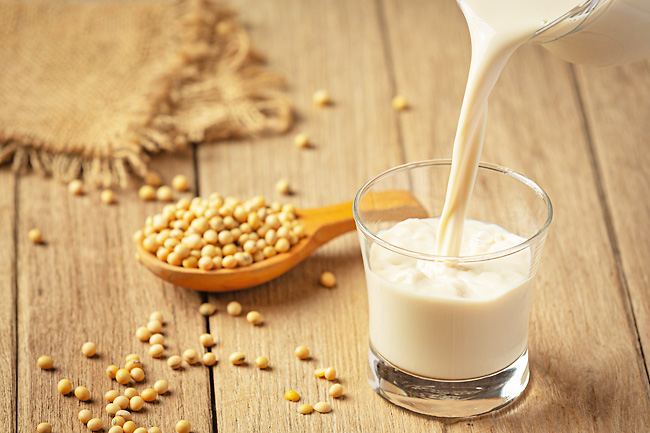Brigitte Mellert
THE STAR/DPA – Soya has long been an essential part of vegetarian and vegan diets.
A great source of protein, soya beans also contain other healthy constituents like magnesium and iron. However, some fear high consumption can affect thyroid function. We’ve taken a closer look at this hotly-debated food.
Whether in their natural form or processed into tofu or milk, soya beans have become an integral part of vegetarian and vegan diets.
Growing numbers of soya-based meat and milk alternatives have popped up in supermarkets in recent years. A member of the legume family, soya beans are known for their high-protein content: about 40 per cent in dried beans and about 11 per cent in ready-to-eat soya products, according to Germany’s Federal Centre for Nutrition (BZfE).
For a balanced diet lacking animal protein, they’re an excellent protein provider, said a research physician at Charité University Hospital’s Department of Endocrinology and Metabolic Diseases Dr Stefan Kabisch in Berlin, Germany.
Soya beans are packed with many other healthy constituents besides protein. Among them are vitamin B, minerals such as magnesium, trace elements such as iron, and unsaturated fatty acids, including omega-3 fatty acids.

But they also contain compounds that nutritionists have some reservations about, such as isoflavones.
A type of phyto-oestrogen, isoflavones occur naturally in plants, including soya, and are similar to oestrogens in humans – the primary female sex hormones.
For this reason, they’re suspected of having a “hormone-activating effect”, said Dr Kabisch.
This means that they can bind to oestrogen receptors in the body and set the same processes in motion as oestrogens do.
Does this mean that soya products aren’t as healthy as they’re cracked up to be?
Dr Kabisch allays such fears.
Healthy people who eat normal amounts of soya have nothing to worry about, he said.
Since they help regulate hormone levels, isoflavones are “very probably harmless, and perhaps even useful”. Long-term studies in Asia, where soya beans have been an essential part of diets far longer than in the West, support this assessment.
Isoflavones are also found in other legumes such as chickpeas, lentils and beans, although in lesser amounts.
Soya is also said to affect the thyroid gland. According to Dr Kabisch, isoflavones are able to block an enzyme in the gland that is responsible for producing active hormones from their inactive precursors.
Inactivation of the enzyme, he said, can lead to hypothyroidism.
However, this effect is very small and not clinically relevant, therefore there is no health risk for healthy people who eat normal amounts of soya products, said the physician.
He also said that when soya beans are processed into tofu, the isoflavone content drops by about 80 per cent. Nevertheless, soya isn’t suitable for everyone.
People with a hormone-related disease such as breast cancer or a metabolic disorder should consult a doctor about having it in their diet, said a nutrition expert at the consumer advice centre of the German state of North Rhine Westphalia Nicole Schlaeger.
Her general recommendation is not to replace dairy products and meat solely with soya products, but to practice variety, eg by drinking oat milk or almond milk instead of soya milk on occasion, preferably enriched with calcium.







